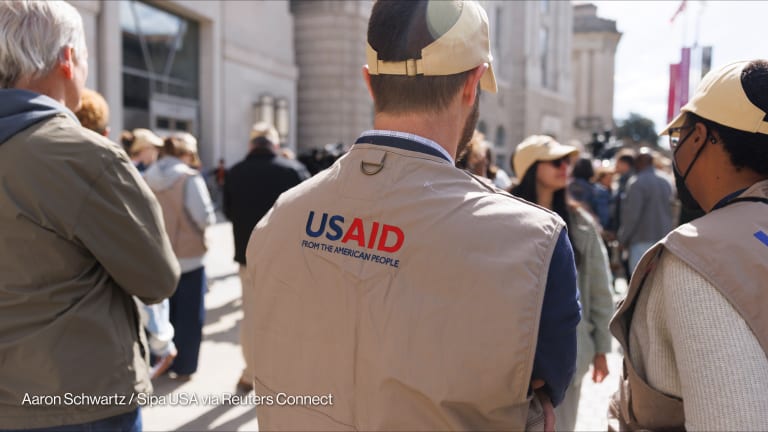Foreign aid is an easy political target. But do Americans want it gone?
The Trump administration has taken a sledgehammer to U.S. foreign aid, dismantling the U.S. Agency for International Development and canceling nearly all of its contracts.
Administration officials have justified the cuts by citing concerns over wasteful spending and inefficiencies. Secretary of State Marco Rubio said “foreign aid is the least popular thing government spends money on,” while the White House has said that the “foreign aid industry and bureaucracy are not aligned with American interests and in many cases antithetical to American values.”
Indeed, the Associated Press-NORC Center for Public Affairs Research polls show that 6 in 10 Americans think that the government spends too much money overall — including on foreign aid —but that they want spending on Social Security and Medicare to continue. At the same time, Americans hold deep misconceptions about foreign aid: Poll after poll shows that the overwhelming majority of Americans have long vastly overestimated how much the U.S. spends on international assistance: Many believe it accounts for about a quarter of the federal budget.
Search for articles
Most Read
- 1
- 2
- 3
- 4
- 5








